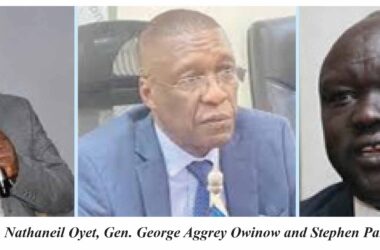
By Chol Makol Riak
The Workers Trade Union in Jonglei state is urging the state government to adhere to its commitment and pays\ civil servants their dues.
This week, the Jonglei state Minister of Information, Veronica William Deng told Radio Jonglei that the state will pay the civil servants their October arrears including their allowances which were omitted by the state governor Denay Jock Chagor.
In a letter dated 23rd February and addressed to the state acting governor Antipas Nyok Kucha, the Acting Chairman of the Workers Trade Union, Mading Mamer Anyang, said the civil servants in some government institutions have not realized the full payment including the allowances.
Samuel Majer Loch is the Secretary General of the Jonglei Workers Trade Union; he said the government should not delay the salaries as it is the only way they can survive.
“The government last week started payment of October salary arears in the three ministries and they are not paying other institutions and that’s the reason why we wrote that letter to the office of the governor and other institutions in the state,” Majier said.
Majier warned of another public demonstration if the state government remains reluctant in paying the state civil servants their rightful dues.
“There is no other way forward, the only way is to go on strike and demonstrate so that the national government would know that we are not treated fair here in the state by the state government,” Majier added.
Early this month, 9 people were injured after hundreds of protesters clashed with bodyguards of the Jonglei state governor in Bor town after governor Denay Jock Chagor decided to deduct money from their salaries to pay for security services.
In December, a committee tasked by President Salva Kiir to investigate the root causes of the civil servant protests in the Jonglei state capital Bor ordered the state government to pay public servants according to the new salary structure. That was after employees rejected their salaries and staged demonstrations to protest what they termed the state’s modified salary structure which does not follow the salary structure with the 100 percent increment according to the President’s order.



